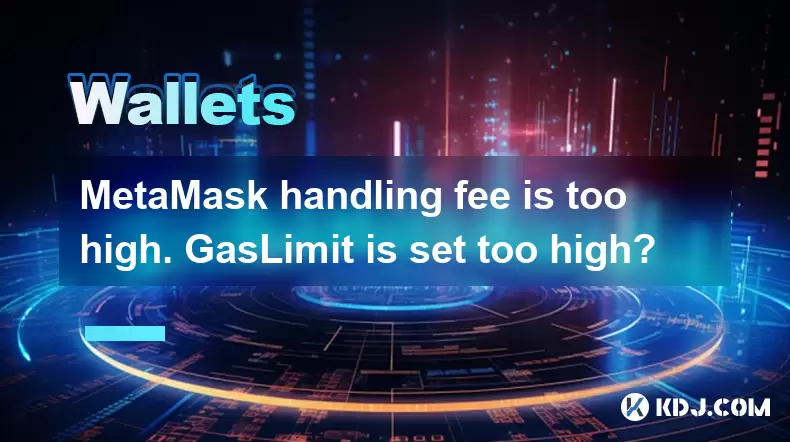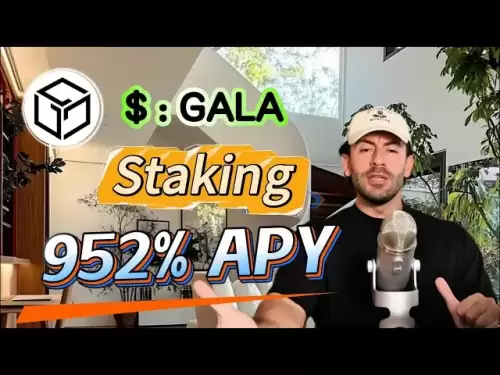-
 Bitcoin
Bitcoin $114500
-0.31% -
 Ethereum
Ethereum $3648
1.11% -
 XRP
XRP $3.033
-0.27% -
 Tether USDt
Tether USDt $0.9999
-0.01% -
 BNB
BNB $758.5
-0.32% -
 Solana
Solana $167.5
1.48% -
 USDC
USDC $0.9998
-0.02% -
 TRON
TRON $0.3331
0.74% -
 Dogecoin
Dogecoin $0.2039
0.25% -
 Cardano
Cardano $0.7419
-0.46% -
 Hyperliquid
Hyperliquid $39.21
2.66% -
 Stellar
Stellar $0.4049
-1.95% -
 Sui
Sui $3.483
-0.56% -
 Bitcoin Cash
Bitcoin Cash $570.8
2.89% -
 Chainlink
Chainlink $16.67
-0.57% -
 Hedera
Hedera $0.2470
-1.57% -
 Ethena USDe
Ethena USDe $1.001
0.00% -
 Avalanche
Avalanche $22.36
1.52% -
 Litecoin
Litecoin $123.4
4.35% -
 UNUS SED LEO
UNUS SED LEO $8.989
0.09% -
 Toncoin
Toncoin $3.324
-2.40% -
 Shiba Inu
Shiba Inu $0.00001219
-1.30% -
 Uniswap
Uniswap $9.811
2.54% -
 Polkadot
Polkadot $3.662
-0.07% -
 Monero
Monero $295.5
-3.85% -
 Dai
Dai $1.000
0.01% -
 Bitget Token
Bitget Token $4.345
0.24% -
 Cronos
Cronos $0.1380
0.95% -
 Pepe
Pepe $0.00001044
-1.14% -
 Ethena
Ethena $0.5981
-4.24%
MetaMask handling fee is too high. GasLimit is set too high?
MetaMask users can lower gas fees by adjusting the gas limit; setting it too high or low can impact costs, so monitoring network conditions is key.
May 12, 2025 at 11:43 pm

When using MetaMask to interact with the Ethereum blockchain, users often encounter high handling fees, commonly referred to as gas fees. These fees can be influenced by the gas limit setting, among other factors. Understanding how to manage and optimize these fees is crucial for users looking to minimize their transaction costs. This article delves into the intricacies of MetaMask's gas fees, the role of gas limits, and how to adjust them to potentially reduce costs.
Understanding Gas Fees and Gas Limits
Gas fees are payments made by users to compensate for the computational effort required to process and validate transactions on the Ethereum network. These fees are measured in gas, a unit that represents the amount of computational effort needed. The gas limit is the maximum amount of gas that a user is willing to spend on a transaction. If the gas limit is set too high, it might result in unnecessarily high fees.
How Gas Fees Are Calculated
The total gas fee for a transaction is calculated by multiplying the gas price (the amount of Ether paid per unit of gas) by the gas used. The gas price is typically measured in Gwei, where 1 Gwei equals 0.000000001 Ether. The gas used depends on the complexity of the transaction or smart contract execution.
For example, if a transaction uses 20,000 gas units and the gas price is set at 20 Gwei, the total fee would be:
[ 20,000 \text{ gas} \times 20 \text{ Gwei/gas} = 400,000 \text{ Gwei} = 0.0004 \text{ Ether} ]
The Impact of Gas Limit on Fees
Setting the gas limit too high does not directly increase the gas price, but it does set an upper bound on how much gas a transaction can use. If the gas limit is set higher than necessary, the transaction will still only use the gas required for execution, but the user will have committed to paying for the full gas limit if needed.
- If the gas limit is too low, the transaction may fail because it runs out of gas before completing.
- If the gas limit is too high, the user may end up paying for unused gas, although any unused gas is typically refunded.
How to Adjust Gas Limit in MetaMask
Adjusting the gas limit in MetaMask can be done through the following steps:
- Open MetaMask: Launch the MetaMask extension or mobile app.
- Initiate a Transaction: Click on the "Send" button or interact with a dApp that prompts a transaction.
- Edit Gas Settings: Before confirming the transaction, click on "Edit" next to the gas fee estimate.
- Adjust Gas Limit: In the gas settings, you can manually adjust the gas limit. For example, if the suggested limit is 21,000 gas, you might lower it to 20,000 if you believe the transaction requires less.
- Confirm and Send: After adjusting the gas limit, review the total fee and confirm the transaction.
Factors Influencing Gas Fees
Several factors can influence the gas fees on the Ethereum network:
- Network Congestion: During periods of high demand, miners may prioritize transactions with higher gas prices, leading to increased fees.
- Transaction Complexity: More complex transactions or interactions with smart contracts require more gas, thus increasing the total fee.
- Gas Price: The gas price set by the user can significantly affect the total fee. Higher gas prices can lead to faster transaction processing but at a higher cost.
Best Practices for Managing Gas Fees
To manage gas fees effectively and potentially reduce costs, consider the following best practices:
- Monitor Network Conditions: Use tools like Etherscan or EthGasStation to check current network congestion and suggested gas prices.
- Optimize Transaction Timing: Try to initiate transactions during off-peak hours when network congestion is lower.
- Use Gas Estimation Tools: Some dApps and wallets provide gas estimation tools that can help you set an appropriate gas limit and price.
- Batch Transactions: When possible, batch multiple transactions into a single transaction to save on gas fees.
Case Study: Reducing Gas Fees with Lower Gas Limits
Consider a scenario where a user is sending Ether to another address. The default gas limit suggested by MetaMask is 21,000 gas. The user decides to lower the gas limit to 20,000 gas, believing that the transaction does not require the full 21,000 gas.
- Original Transaction: 21,000 gas at 20 Gwei = 420,000 Gwei = 0.00042 Ether
- Adjusted Transaction: 20,000 gas at 20 Gwei = 400,000 Gwei = 0.0004 Ether
By lowering the gas limit by 1,000 gas, the user saves 0.00002 Ether. While this saving might seem small, it can add up over multiple transactions.
Common Misconceptions About Gas Limits
There are several misconceptions about gas limits that can lead to confusion:
- Misconception 1: Setting a higher gas limit will make transactions process faster. Reality: The gas limit does not affect transaction speed; the gas price does.
- Misconception 2: Unused gas is not refunded. Reality: Any unused gas is returned to the user's wallet.
- Misconception 3: Lowering the gas limit always saves money. Reality: If the gas limit is set too low, the transaction may fail, resulting in wasted gas and a need to resubmit the transaction.
Frequently Asked Questions
Q1: Can I set the gas limit to zero to avoid fees?
A1: No, setting the gas limit to zero would cause the transaction to fail immediately because all transactions require a minimum amount of gas to be processed.
Q2: Does the gas limit affect the security of my transaction?
A2: No, the gas limit does not affect the security of a transaction. It only determines the maximum amount of gas that can be used.
Q3: How can I estimate the gas limit for a complex smart contract interaction?
A3: You can use the "Estimate Gas" feature in MetaMask or other Ethereum tools to get a rough estimate of the gas required for a specific interaction.
Q4: What happens if my transaction uses less gas than the set limit?
A4: If your transaction uses less gas than the set limit, the unused gas will be refunded to your wallet, but you will still pay for the gas that was used.
Disclaimer:info@kdj.com
The information provided is not trading advice. kdj.com does not assume any responsibility for any investments made based on the information provided in this article. Cryptocurrencies are highly volatile and it is highly recommended that you invest with caution after thorough research!
If you believe that the content used on this website infringes your copyright, please contact us immediately (info@kdj.com) and we will delete it promptly.
- Solana Memecoin Mania: Trader Profit Secrets Revealed!
- 2025-08-05 20:30:13
- POL Price Rebound: Will Consolidation Lead to a Breakout?
- 2025-08-05 20:30:13
- PEPE Price Downtrend: Expert Warning Signals More Drops Ahead?
- 2025-08-05 21:10:12
- Ethereum, Bitcoin, and Fractals: Decoding the Crypto Tea Leaves
- 2025-08-05 21:30:12
- Coinbase's Next Play: Buybacks, Bitcoin, and Bold Acquisitions
- 2025-08-05 20:50:12
- Crypto in 2025: Can These Under-$1 Gems Deliver 2500x Gains?
- 2025-08-05 21:30:12
Related knowledge

How to add TRC20 token to Trust Wallet?
Aug 04,2025 at 11:35am
Understanding TRC20 and Trust Wallet CompatibilityTrust Wallet is a widely used cryptocurrency wallet that supports multiple blockchain networks, incl...

What is a watch-only wallet in Trust Wallet?
Aug 02,2025 at 03:36am
Understanding the Concept of a Watch-Only WalletA watch-only wallet in Trust Wallet allows users to monitor a cryptocurrency address without having ac...

Why can't I connect my Trust Wallet to a DApp?
Aug 04,2025 at 12:00pm
Understanding DApp Connectivity and Trust WalletConnecting your Trust Wallet to a decentralized application (DApp) is a common process in the cryptocu...

How to fix a stuck pending transaction in Trust Wallet?
Aug 03,2025 at 06:14am
Understanding Why Transactions Get Stuck in Trust WalletWhen using Trust Wallet, users may occasionally encounter a pending transaction that appears t...

What is a multi-coin wallet in Trust Wallet?
Aug 03,2025 at 04:43am
Understanding Multi-Coin Wallets in Trust WalletA multi-coin wallet in Trust Wallet refers to a digital wallet that supports multiple cryptocurrencies...

How to switch between networks in Trust Wallet?
Aug 02,2025 at 12:36pm
Understanding Network Switching in Trust WalletSwitching between networks in Trust Wallet allows users to manage assets across different blockchains s...

How to add TRC20 token to Trust Wallet?
Aug 04,2025 at 11:35am
Understanding TRC20 and Trust Wallet CompatibilityTrust Wallet is a widely used cryptocurrency wallet that supports multiple blockchain networks, incl...

What is a watch-only wallet in Trust Wallet?
Aug 02,2025 at 03:36am
Understanding the Concept of a Watch-Only WalletA watch-only wallet in Trust Wallet allows users to monitor a cryptocurrency address without having ac...

Why can't I connect my Trust Wallet to a DApp?
Aug 04,2025 at 12:00pm
Understanding DApp Connectivity and Trust WalletConnecting your Trust Wallet to a decentralized application (DApp) is a common process in the cryptocu...

How to fix a stuck pending transaction in Trust Wallet?
Aug 03,2025 at 06:14am
Understanding Why Transactions Get Stuck in Trust WalletWhen using Trust Wallet, users may occasionally encounter a pending transaction that appears t...

What is a multi-coin wallet in Trust Wallet?
Aug 03,2025 at 04:43am
Understanding Multi-Coin Wallets in Trust WalletA multi-coin wallet in Trust Wallet refers to a digital wallet that supports multiple cryptocurrencies...

How to switch between networks in Trust Wallet?
Aug 02,2025 at 12:36pm
Understanding Network Switching in Trust WalletSwitching between networks in Trust Wallet allows users to manage assets across different blockchains s...
See all articles

























































































